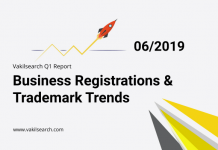Envision a pharmaceutical plant where people are watchful and attentive as the business responds to change quickly and efficiently. As digital transformation ensues to disrupt, transform and reshape industries we can now picture an operation that delivers consistent production, real-time information and accurately controlled and safe processes that comply to the regulatory and demanding requirements of the pharmaceutical industry. Product quality is affected by factors such as fluctuations in the quality of raw materials and the aging of manufacturing facilities. To help address such problems, manufacturers are turning to digital technologies and solutions such as AI, big data, and Industrial Internet of Things (IIoT). Time has come for co-innovating tomorrow.
The pharmaceutical industry has recognized the value of automation as we have come to recognize that industrial automation is a business tool, not just a control tool, which can help process businesses meet their industrial challenge. Its imperative for pharmaceutical companies to achieve compliance and safety while maintaining cost efficiency as any deviation in the set standards can lead in jeopardizing the lives of the end users.
Ideally an intelligent and scalable Plant Information Management System is in the heart of the system which provides an analysis and reporting application that collects, stores and displays current and historical data from batch production, equipment and recipe viewpoints. This enables production and recipe management, process engineering, quality management and operations staff to easily access batch information for decision support, production planning and scheduling, analysis, process improvement and quality purposes. These are ideal productivity improvement tools that enables user to focus on KPIs (Key Performance Indicators) such as a cycle time and frequency using the web based browsing, analysis and reporting user interface and to develop action plans for process improvements. Intelligence and scalability varies from developer to developer and user needs to exercise right diligence to select the one suitable for present and as well future needs.
Achieving sustainability goals is the hottest topic discussed now-a-days, that will guide its efforts to make the world a better place for future generations. To ensure flexible response to environmental and technology changes and guide its long term efforts to address social issues. It is also important to achieve net-zero emissions, take a transition to a circular economy and pharmaceutical companies operate in a global marketplace and the industry is encouraged to comply with international initiatives such as the PIC/S Good Manufacturing Practice (GMP) Guide and the ICH Guidelines. GMP facilities need to follow established best practices and automated production equipment and computer systems are expected to adopt current computerised system validation (CSV) practices such as Good Automated Manufacturing Practice (GAMP). As a company our goal is to contribute to society through broad-ranging activities in the areas of measurement, control and information. Individually, we aim to combine good ctitizen with the courage of innovation. Automation of processes and embedding rules helps companies in ensuring that the data produced is compliant. It can be thus concluded that automation is the first step towards achieving improvement in compliance from the regulatory point of view. Contribution from Pharma Industry is seeing a high growth rate since last couple of years . With innovative IIoT solutions , inherent reliability and Quality –hallmark of Yokogawa and synonymous with Pharmaceutical Industries , we are poised for higher growth in this segment.
The automation of data → knowledge → insights is an area of focus in the immediate future. In order to get to this stage of maturity, we find that majority of the organisations are significantly unprepared to be data driven. Often, customers replace existing big data technologies and the culture has not yet transformed to leverage data as a critical digital asset. Some of the other critical issues in transforming an organization to become data driven include organizational alignment on analytics, overcoming existing master data issues, recruit new talent (data scientists, machine learning experts) and best-in-class data governance practices. In essence, organisations should leverage data as a pathway to drive operational efficiency, growth and sustained operational value improvements.
Pharma companies can look for-
- Secure flexible reporting incorporating data from Batches, Master Recipes, Equipment, Trend values, Alarms and Events.
- Built-in reporting workflow to configure templates, approve templates, assign to report scheduler, run templates to generate reports, approve reports and view reports.
- 21 CFR Part 11 capable option is available, if required.
For emerging technologies in pharma segment, choosing the right solution is always a challenge. So best way to depend on the leaders known for technological co-innovation, customer centricity and reliability.
Here are few guidelines:
- ‘Out of the box’ integration with Batch control systems, providing immediate usability and benefits without complex engineering and database configuration.
- Standard data analysis capability, providing:
- Automatic calculation and charting of cycle times and unit utilization for each batch.
- Automatically calculated performance ratings for each batch.
- Comparison of batches to peer groups.
- A powerful tool for sorting and comparing batch history data.
- A customizable web-based user interface providing:
- Batch, master recipe and equipment data accessible from one place
- Ad-hoc web access to data without custom display generation.
- Secure data storage with minimal administration.
 Both compliance and regulation are required while manufacturing the products and packaging them. In today’s new age IIoT age process automation system is applied in the primary manufacturing of the active pharmaceutical ingredients and process and discrete automation techniques are applied during packaging and formulation — which include compounding, washing, labelling machine, and packing.
Both compliance and regulation are required while manufacturing the products and packaging them. In today’s new age IIoT age process automation system is applied in the primary manufacturing of the active pharmaceutical ingredients and process and discrete automation techniques are applied during packaging and formulation — which include compounding, washing, labelling machine, and packing.
 An article by: Mr. Sajiv Nath, MD, Yokogawa India Ltd.
An article by: Mr. Sajiv Nath, MD, Yokogawa India Ltd.



